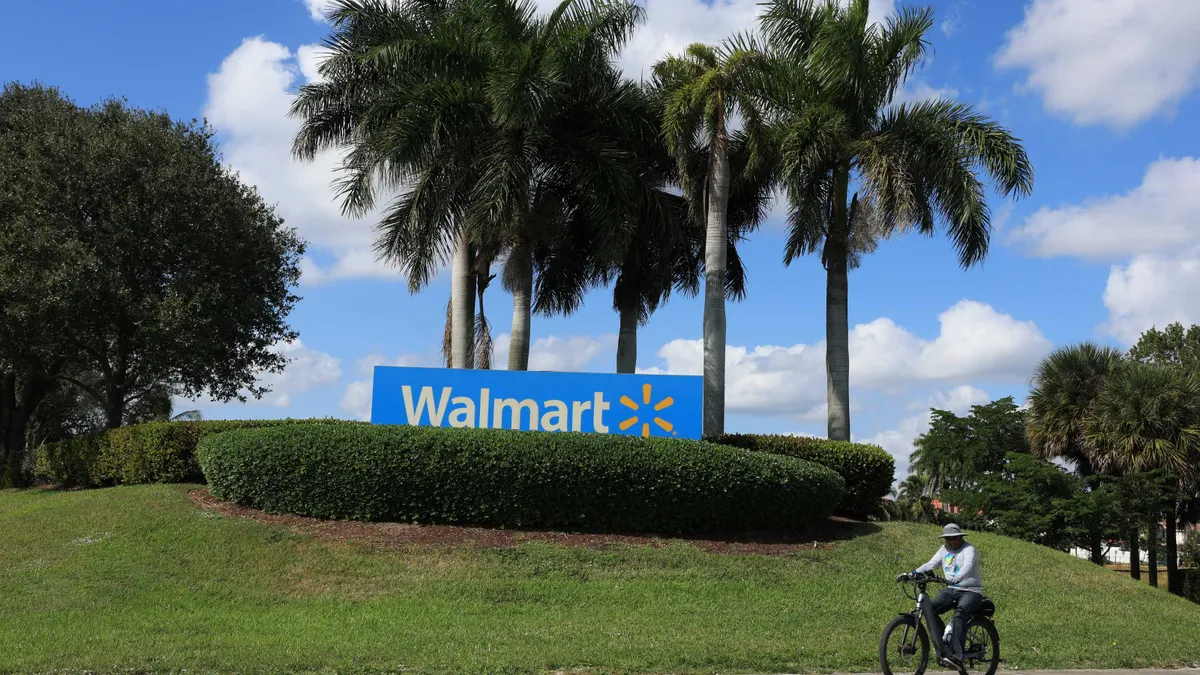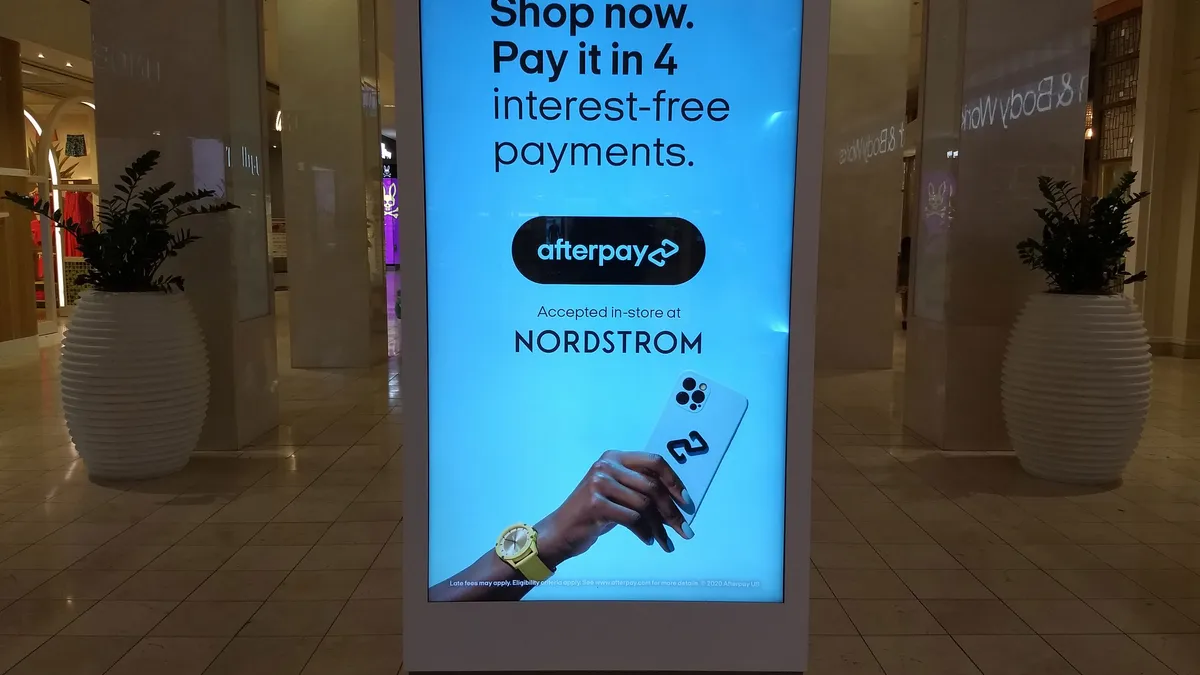Fiserv’s application for a special purpose bank charter in Georgia has sparked a flurry of interest in the charter option, and more companies are expected to follow suit in the coming months.
As of Thursday, the Georgia Department of Banking and Finance had not yet received any other applications, but it’s fielded “a number of inquiries” on the charter, enough to prompt some reorganizing of the charter information on the department’s website, according to Bo Fears, the department’s senior deputy commissioner.
Based on that interest, “I would not be surprised at all to receive more applications in the next few quarters,” Fears said this week.
James Stevens, an Atlanta-based partner in Troutman Pepper’s financial services practice, echoed that sentiment. His firm has heard from legacy merchant acquiring companies in the past two weeks who are interested in applying for the charter, he said Monday. He also expects some companies are already working on applications.
Payment processor Fiserv has applied to obtain a merchant acquirer limited purpose bank charter in Georgia, the company confirmed earlier this month. The charter would enable Brookfield, Wisconsin-based Fiserv to authorize, settle and clear payment transactions for merchants, removing the need for a bank partner. Alpharetta, Georgia is among Fiserv’s major office locations.
Fiserv took the step as “third-party financial institutions that have traditionally provided access to the card networks as sponsor banks increasingly focus on other areas of their business,” a company spokesperson said in a Jan. 11 statement.
The move is likely “to be a game changer in fintech and payments,” said Keith Barnett, an Atlanta-based partner in Troutman Pepper’s consumer financial services group.
Other large merchant acquirers with headquarters in the state may be candidates for the charter. That could include Global Payments and Priority Technology, said David Robertson, publisher of industry publication the Nilson Report.
He also expects payments companies such as Stripe and Square will pursue the charter, establishing a presence in Georgia if needed to meet application requirements. Spokespeople for Global Payments, Priority Technology, Stripe and Square didn’t immediately respond to requests for comment.
Card networks’ mindset evolving?
Currently, no entity holds a MALPB charter, which was created in 2012. Israeli payments company Credorax, which has since changed its name to Finaro, and was acquired by payments processor Shift4, is the only other entity to have applied for Georgia’s charter, Fears said. Credorax applied for and received a charter about a decade ago, but never began operations, he said.
That’s because the company was never granted membership access to card networks Visa and Mastercard, Stevens said. “Over the years, although people have looked at this charter and thought about it, there’s been no comfort level from anybody that would seek one of these charters that the card networks would allow those charters to join the relevant card networks,” Stevens said.
Attorneys and consultants have speculated that Visa and Mastercard weren’t comfortable with some of the requirements of the Georgia charter, or the perceived level of vetting on the part of the state department when reviewing applications. A spokesperson for Mastercard declined comment. Visa didn’t respond to a request for comment.
But the card networks’ sentiment may be evolving. In Europe, it’s not uncommon for acquirers to handle settlement directly, rather than tapping a bank to do so. The card networks have realized in recent years that the top non-banks in Europe can safely operate within the system, leaving them more amenable to the idea here, Robertson said.
Dutch company Adyen is both the acquirer and bank, and in 2021 gained permission to leverage its European bank license in the U.S.
In recent years, a host of fintechs have risen up, angling to serve their customers in more ways, and consumers and merchants have also become more comfortable receiving financial services from non-banks. “The card networks are seeing the wave of the future,” Barnett said.
Visa and Mastercard themselves are “nipping around the edges” of what had once been the sole purview of banks, Robertson noted. “The reason why this didn’t happen before was because of politics within the Visa and Mastercard world, and those politics are changing,” he said.
Not allowing the large processors to do bank-direct settlement “is just old school thinking, which is not really where the industry needs to be,” Robertson added.
When Credorax applied a decade ago, the card networks were likely skeptical of the new charter, and “it was a stretch to even ask,” said Joe Brannen, president and CEO of the Georgia Bankers Association. However, “it’s not a stretch” for a company such as Fiserv, which already works with many U.S. banks, to “get a different level of attention and courtesy from those networks,” he said.
‘Open the floodgates’
For Fiserv, the move not only shaves costs and bolsters margins, it potentially enhances the company’s embedded finance play and increases its stickiness with clients. Robertson expects Fiserv will “almost certainly” pursue offering other financial services once it’s secured a charter, such as debit cards to fund merchants.
The more relationships a processor-acquirer can establish with a merchant, the less likely it is the merchant will leave to find another provider, he added.
There’s no official approval timeline, but Fiserv expects the process to be complete sometime during the first half of the year. The spokesperson said Tuesday that the company is also applying for card network membership, but declined to comment further.
In reviewing the charter application, Georgia regulators are reviewing management and board experience, capital sufficiency and risk and compliance procedures, while also considering aspects unique to this charter, such as chargeback exposure, Stevens said.
Fiserv’s application process is likely to take longer than most anticipate, Stevens said. “It’s going to be very difficult for people to get this charter, and to maintain it,” he said, noting the possibility of the company hiring new personnel and drafting policies and procedures.
If Fiserv receives the charter and gains access to the card networks, it could open the floodgates for other merchant acquirers, whom Stevens expects are watching the situation closely.
“Some people might go ahead and file while they’re still waiting to see what happens with this application, so that they’re not far behind,” he said of the state charter.
Lynne Marek contributed to this report.





















